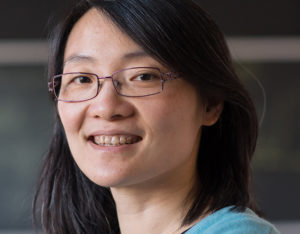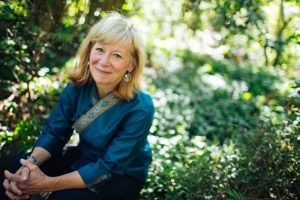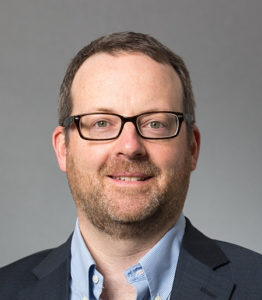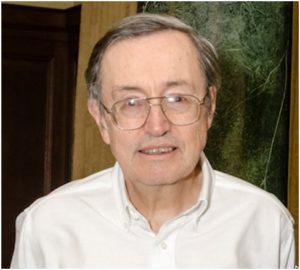The inaugural Hilda Karlsson Roderick Lecture took place in the spring of 2017. This annual event funded by the Roderick family (described below) brings an exciting speaker to campus each year with the goal of stimulating interest in science fields, sparking curiosity in younger scientists, offering topics of further exploration, and enriching the current faculty at Berea College. Normally the talk is given in the spring of each year, often but not necessarily in April. The speaker might be given a handcrafted gift from the Berea College crafts department and/or a small honorarium as fits each individual. The events will be publicized in advance and the general public outside Berea is certainly welcome to participate.
Past Roderick Lecturers
- 2017 – Robert Crabtree, Yale University (Friday, March 24th)
- 2018 – George M. Whitesides, Harvard University (Monday, March 26th)
- 2019 – Geoffrey W. Coates, Cornell University (Friday, April 5th)
- 2020 & 2021 – Cancelled due to COVID
- 2022 – Geraldine Richmond, University of Oregon
- 2023 – Mei Hong, Massachusetts Institute of Technology (date TBD)
- 2024 – To be determined
- 2025 – To be determined
We are excited to announce that our fifth Roderick Seminar speaker will be Professor Mei Hong from the Department of Chemistry at the Massachusetts Institute of Technology (MIT). Her itinerary will be

Professor Mei Hong of MIT
posted here as it becomes available. Additional information about Professor Hong is available on her group website.
Abstract
- to be determined
Biography
Mei Hong attended Mount Holyoke College for her BS in Chemistry and then UC Berkeley for her Ph.D. She did post-doctoral research with Robert Griffin of MIT before joining the faculty at Iowa State University. She moved from ISU to MIT in 2014 and has won numerous prizes for her work on biomembranes and structures using high field NMR spectroscopy.

Dr. G. Richmond, Undersecretary for Science and Innovation, Department of Energy
We are excited to announce that our fourth Roderick Seminar speaker will be Geraldine Richmond from the Department of Energy on leave from the University of Oregon. She will be in Berea on March 18th, 2022 to deliver a presentation for a thermochemistry class (9:20 AM, MAC470) and a public seminar in the MAC Planetarium (4:00 PM) entitled “The Magic and Mysterious Ways of Water.” In 2021, Geri Richmond was appointed as the Under Secretary for Science and Innovation at the Department of Energy (DOE). In this role she oversees DOE’s Office of Science, the nation’s largest federal sponsor of basic research in the physical sciences, DOE’s applied R&D areas of nuclear, fossil, and renewable energy, and energy system integrity, and the DOE national laboratories and their facilities. Additional information about Professor Richmond can be found on her website at the chemistry department of the University of Oregon.
Abstract
- Although the special properties of water have been valued and appreciated for centuries, as scientists we continue to be perplexed by the molecular makeup of water in all its forms. Equally perplexing is the surface of water, the entry gate for anything going into our water. In this presentation, I will discuss what we have learned in my laboratory about water surfaces through experimental and computational studies, and how my curiosity of its unique behavior and concerns about water security has guided my career in unanticipated ways.
Biography

Dr. Richmond on leave from University of Oregon
Geraldine (Geri) Richmond was appointed as the Under Secretary for Science and Innovation at the Department of Energy (DOE) in 2021 while on leave from the Presidential Chair in Science and Professor of Chemistry at the University of Oregon where she has been since 1985. A native of Kansas, she received her undergraduate degree in chemistry from Kansas State University and her Ph.D. in physical chemistry from the University of California, Berkeley. Her educational efforts have focused largely on introductory chemistry and science literacy courses as well as being the director of several University of Oregon undergraduate research programs. Her research examines the chemistry and physics that occurs at complex surfaces that have relevance to important problems in energy production, environmental remediation, and atmospheric chemistry. Using a combination of laser-based methods and theoretical simulations her most recent efforts have focused on understanding environmentally important processes at water surfaces. Over 200 publications have resulted from the studies conducted in her laboratory with undergraduate, graduate students, and postdoctoral associates.
The COVID pandemic continues and we are opting to have no in-person seminars in 2020-2021 academic year.
The COVID pandemic canceled all events at Berea College after spring break and hence no Roderick Seminar was given this year.

Our third Roderick Seminar speaker was Geoff W. Coates from Cornell University. Professor Coates will give a presentation at noon to the inorganic chemistry class at 10:40 AM in MAC455. Later in the afternoon, the public Roderick Seminar will take place at 4:00 PM in the Planetarium of the MAC Building (room 402) with refreshments served at 3:30 PM in MAC455. Additional information about Professor Coates can be found on his website at the chemistry department of Cornell University.
Abstract
- “In Pursuit of the Perfect Plastic” – Abstract: Society depends on polymeric materials more now than at any other time in history. Although synthetic polymers are indispensable in a diverse array of applications, ranging from commodity packaging and structural materials to technologically complex biomedical and electronic devices, their synthesis and disposal pose important environmental challenges. The focus of our research is the development of sustainable routes to polymers that have reduced environmental impact. This lecture will focus on our research to transition from fossil fuels to renewable resources for polymer synthesis, as well as the development of polymeric materials designed to bring positive benefits to the environment.
- Organic II Discussion
Biography
Prof. Coates is the Tisch University Professor in the Department of Chemistry and Chemical Biology at Cornell University. His teaching and research interests involve science at the interface of organic, inorganic, and materials chemistry. The broader impacts of his research include benign polymers and chemical synthesis, the utilization of renewable resources, and materials safe and economical energy storage and conversion.
Additional information may be found on his group website.

George M Whitesides
Our second Roderick Seminar speaker was George M. Whitesides from Harvard University. Professor Whitesides gave a presentation at noon to the organic chemistry II class where he discussed Reengineering Chemistry. Later in the afternoon, the public Roderick Seminar was entitled Soft Robotics. The talk began at 4:00 PM in Science Hall, Room 106 with refreshments served at 3:30 PM in the lobby. Additional information about Professor Whitesides can be found on his website at the chemistry department of Harvard University.
Abstract
- “Reengineering Chemistry” Abstract: Chemistry is facing a set of very important challenges, and ones that are very different than those it has addressed in the past. This talk will outline some of the reason that the agenda of the field is changing, and how it may have to change in response.
- “Soft Robotics” Abstract: “Robotics” is a field with broad interest: it combines mechanical engineering, information science, and animal physiology with manufacturing, workforce development, economics, and other areas. The most highly developed classes of robots have been build based on conceptual models provided by the body-plans of animals with skeletons (humans, horses), and have made it possible to carry out tasks that humans and animals could not (for a variety of reasons). We are interested in robots based a different, simpler class of organisms (invertebrates: starfish, worms, octopi). Because these organisms, and the robots having designs stimulated by them, have no skeletons, they provide enormous opportunities in materials and polymer science, rather than primarily in mechanical engineering. This seminar will outline one approach to soft robots, and suggest problems and opportunities in this new field.
Biography
George M. Whitesides grew up in Louisville, KY before going to prep school in Andover, Massachusetts. From there he went on to an undergraduate degree at Harvard University in 1960 and then a doctorate at the California Institute of Technology in 1964. Professor Whitesides worked at the Massachusetts Institute of Technology from 1963 until 1982 when he returned to Harvard ever since. In 2004 he was appointed as one of only a handful of Woodford L. and Ann A. Flowers University Professors at Harvard. George Whitesides has won many of the major awards across many fields of chemistry and is one of the most highly cited researchers in the world. He has a brief biography on his Wikipedia page for further information.

Our inaugural Roderick Seminar speaker was Robert Crabtree from Yale University. Professor Crabtree discussed innovations in inorganic chemistry from his 40-year career from 1977 to the present. The title of the Roderick talk was Catalysts for Energy Applications. The talk began at 4:30 PM in Science Hall, Room 106 with refreshments served at 4:00 PM in the lobby. Additional information about Professor Crabtree can be found on his website at the chemistry department of Yale University.
Abstract
 Catalysis is an essential aspect of alternative energy research. Water splitting to O2 and H2 is needed for artificial photosynthesis, CH hydroxylation relates to functionalization of organic compounds and dehydrogenative oxidation extracts H2 from biomass products such as glycerol. An example of the latter is glycerol conversion to lactic acid, a much higher value product than the starting material.
Catalysis is an essential aspect of alternative energy research. Water splitting to O2 and H2 is needed for artificial photosynthesis, CH hydroxylation relates to functionalization of organic compounds and dehydrogenative oxidation extracts H2 from biomass products such as glycerol. An example of the latter is glycerol conversion to lactic acid, a much higher value product than the starting material.
Biography
At Yale since 1977, Bob Crabtree is now Whitehead Professor. He has been ACS and RSC organometallic chemistry awardee, Baylor medalist, Mond lecturer, Kosolapoff awardee, Stauffer Lecturer, has chaired the ACS Inorganic Division and is the author of an organometallic textbook. Early work on catalytic alkane C-H activation and functionalization was followed by work on H2 complexes, dihydrogen bonding, and catalysis for green and energy chemistry. He is a Fellow of the ACS and of the American Academy of Arts & Sciences.
History of the Roderick Lecture Series
The lecture series is being funded by Hilda Karlsson Roderick who was born in 1927 to immigrant parents living a warm, but simple farm life in Southern Maryland. Grateful to have found Berea, she graduated with honors in 1948 and went on to receive a Masters in biochemistry from Oklahoma A&M College and a teaching credential from University of California Berkeley. She taught high school and also worked as a research assistant at the University. She later joined the MDI Biological Laboratory as a technician to earn supplemental college tuition money for her children.
She met and married Thomas H. Roderick and moved to Bar Harbor, ME. Thomas was a research scientist and professor at the Jackson Laboratory. They frequently hosted scientific guests in their home. They had a family, including a son and daughter, Margarethe and George, and kept busy with school and many activities, including scouting for both. Hilda became involved with scouting at the national and international levels of Girl Scouts, and was named an “Honorary World Member.”
Berea always rings a happy note for Hilda and her family, as they visited campus, as well as met friends and faculty. Thomas always joined Hilda for her class reunions. Hilda served Berea by coordinating “Berea Day in Maine” for 30 years, an annual gathering of Berea Alumni, and received the President’s “Alumni Loyalty Award” at her 60th Berea Reunion.